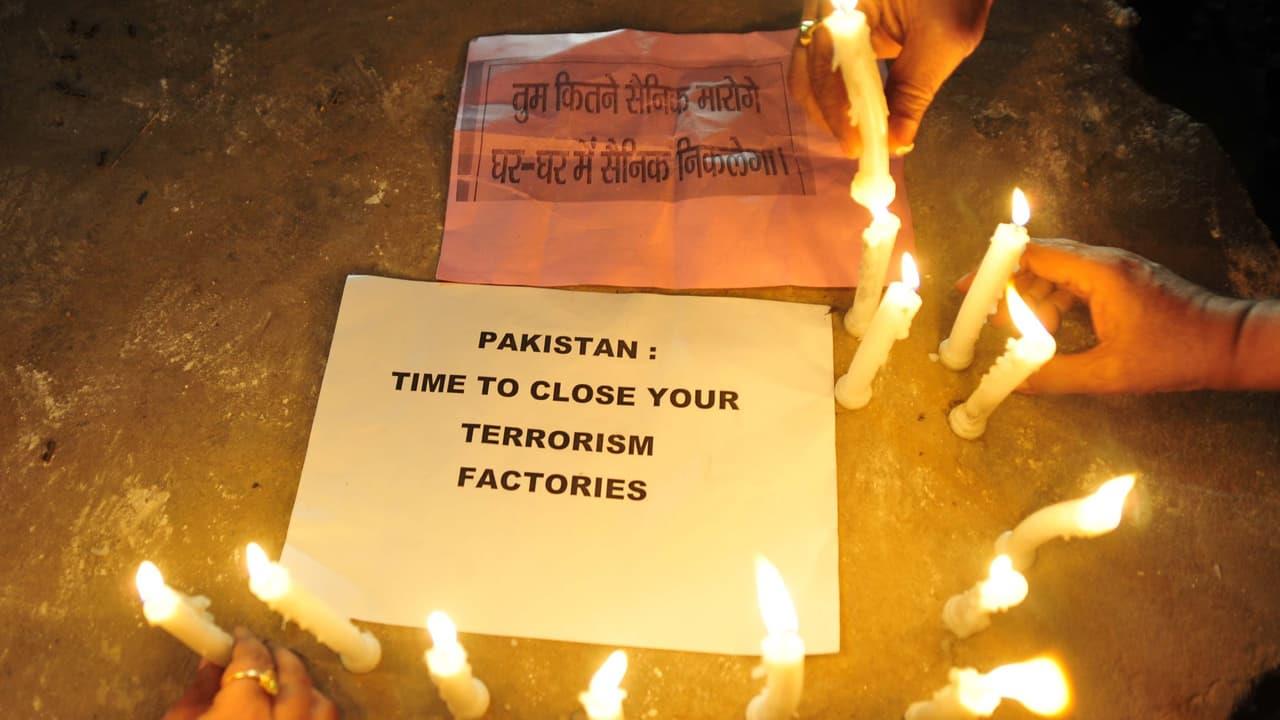
9 Years Since Uri Attack: How India Redefined Its Counter-Terror Strategy
New Delhi: September 18 marks the anniversary of the tragic 2016 Uri attack, a day that changed India's approach to cross-border terrorism. For decades, India has borne the brunt of Pakistan-backed terrorist strikes, as Islamabad pursued its policy to“bleed India with a thousand cuts,” leaving thousands dead and lakhs injured. For years, India refrained from proportional retaliation, constrained by fears of nuclear escalation and regional instability. The Uri attack, which claimed the lives of 18 brave Indian soldiers, marked a turning point - the moment India decided enough was enough.
According to the South Asia Terrorism Portal (SATP), since 2000, terror incidents in Kashmir alone have claimed 8,609 lives, including 3,628 security personnel and 4,981 civilians. When factoring in major attacks such as the Parliament siege, the Mumbai local train blasts, the 26/11 Mumbai terror attacks, the Akshardham temple attack, and other operations carried out by Pakistan-based terror groups like Lashkar-e-Taiba (LeT), Jaish-e-Mohammad (JeM), and their affiliates, the total casualties are significantly higher.
But India always avoided direct action against terror groups. The reason for this was fear of a nuclear war with Pakistan, which could be disastrous for the most populous geographical region in the world.
Even when the Kargil incursions happened from the Pakistani army, the orders were not to cross the LoC. The casualty figures would have been far fewer for the Indian Army if it had been allowed to strike across the LOC.
Uri Attack 2016: India Takes the First Bold Step
But things changed 9 years ago, following the gruesome terror attacks on an Indian army camp on September 18 in the Uri sector near the LoC, killing 18 Indian soldiers. That was when it was felt that enough was enough. It was time for affirmative action.
In a bold departure from past restraint, India responded to the terrorist attack in Uri on 18 soldiers by conducting Surgical Strikes on 28-29 September, 2016.
These strikes inflicted heavy losses on terrorists and their protectors across the Line of Control.
Pulwama and Balakot: Precision Strikes Redefining Deterrence
A few years later, on February 14, 2019, the Pulwama terror attack claimed the lives of 40 CRPF jawans. India's response came swiftly.
On February 26, 2019, in an intelligence-led operation, the Balakot airstrikes eliminated a large number of Jaish-e-Mohammad (JeM) terrorists, including senior commanders.
The facility targeted was located far from civilian areas and headed by Maulana Yousuf Azhar, brother-in-law of JeM chief Masood Azhar.
These pre-emptive actions showed the world that India would no longer tolerate proxy war through terrorism.
Operation Sindoor 2025: Retaliation with Advanced Warfare
There was a lull for the next eight years. Then, in April 2025, a brutal terror attack on civilians in Pahalgam happened, in which 26 innocent lives were lost. There was immense pressure on the government to react. This time, the establishment upped the ante further and launched Operation Sindoor, executing precise retaliatory strikes against nine terrorist camps in Pakistan and Pakistan-occupied Jammu and Kashmir.
The Indian military, acting on accurate intelligence, relied on drone strikes, loitering munitions, and layered air defence to neutralise key threats without crossing international boundaries.
Key command centres of Jaish-e-Mohammed (JeM) and Lashkar-e-Taiba (LeT) were destroyed, severely disrupting their operational capabilities. The strikes resulted in over 100 terrorists killed in action, including individuals linked to the IC-814 hijack and Pulwama blast, like Yusuf Azhar, Abdul Malik Rauf and Mudassir Ahmad.
When Pakistan launched drone and missile attacks on May 7–8 against multiple Indian cities and bases, these were swiftly intercepted, showcasing the effectiveness of India's net-centric warfare systems and integrated counter-UAS (unmanned aerial systems) grid.
In his address to the nation, Prime Minister Narendra Modi reiterated India's firm policy on cross-border terrorism and its approach towards Pakistan.
He underlined that national security is non-negotiable and outlined clear red lines regarding dialogue, deterrence, and defence.
What was more important was that Prime Minister Modi made it clear that India won't be deterred by nuclear threats and will continue to carry out precise strikes against terrorist hideouts. There won't be any difference between the masterminds and the sponsors of terror; both will be held accountable.
Essentially, India has called out Pakistan's nuclear bluff every time since 2016 and was ready to take the war against terror to the enemy camp.
Although knowing Pakistan fully well, one can expect another terror strike sooner or later, but now it also knows that the consequences of any future misadventure would be tremendous.
As PM Modi had said, any future terrorist attack of such magnitude will be considered as an act of war. India is not going to take things lying down anymore. There has been a paradigm shift in India's response to cross-border terror attacks.
Legal Disclaimer:
MENAFN provides the
information “as is” without warranty of any kind. We do not accept
any responsibility or liability for the accuracy, content, images,
videos, licenses, completeness, legality, or reliability of the information
contained in this article. If you have any complaints or copyright
issues related to this article, kindly contact the provider above.


















Comments
No comment